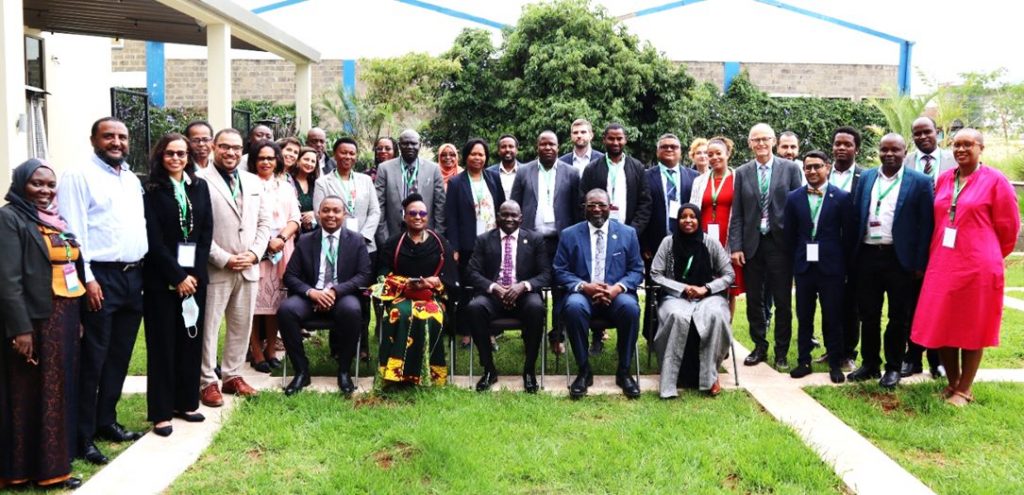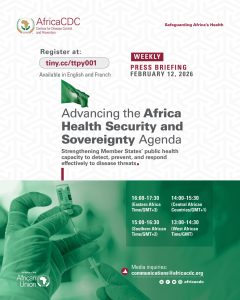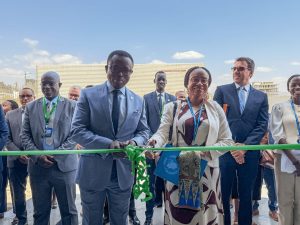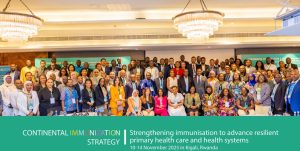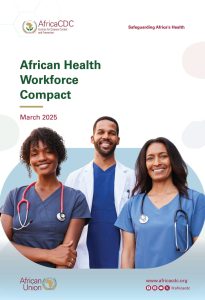Nairobi, Kenya | 18th November 2022: The Africa Centers for Disease Control and Prevention (Africa CDC) together with the Ministry of Health of Kenya and partners, hosted the workshop on Integrating Mental Health and Psychosocial Support (MHPSS) in Health Emergency Preparedness and Response (EPR) Plans for East Africa Member States from 14 to 18 November 2022. The workshop brought together ten Member States from the Eastern Africa Region, delegates from WHO AFRO and EMRO, UNICEF, Non-Governmental Organizations (NGOs) as well as experts in mental health and emergency preparedness and response.
Mental health and psychosocial support should be an essential part of emergency preparedness and response across Africa. This is particularly urgent as the continent faces many emergencies, from infectious disease outbreaks, such as the current Ebola Virus Disease (EVD) outbreak, to humanitarian crises due to conflicts and climate change. These emergencies have a huge impact on mental health amongst the public, and disrupts mental health and psychosocial support services. In some Member States multiple emergencies occur at the same time, resulting in possible distress in the population. The severe impact of the COVID-19 pandemic has led to increased attention toward mental health and psychosocial support, increasing its priority in emergency preparedness and response.
Opening the workshop, the Acting Director General for Health in Kenya, Dr Patrick Amothsaid “Public health and humanitarian emergencies have had tremendous impact on the mental health of populations worldwide, and more so in the African region. A public health model is therefore critical to address the short- and long-term mental health and psychosocial consequences of COVID-19 as well as other emergencies.“
Speaking at the workshop, the Acting Director of Africa CDC, Dr. Ahmed E. Ogwell Ouma, noted that “Mental health is and should be a priority for everyone, and there’s need to integrate mental health and psychosocial support in emergency and response plans so as to strengthen health security in the region and the continent at large.” Dr. Ahmed also underscored the importance of Africa’s New Public Health Order, noting that a new way of responding to disease threats was paramount. He lauded the organizers for bringing together focal persons for Mental Health Focal and those of Emergency Preparedness and Response to share lessons from COVID-19, and other emergency responses in the region and beyond.
Supporting Member States to integrate MHPSS in emergency preparedness and response is a priority for Africa CDC, as reflected in its Non-Communicable Diseases, Injuries Prevention and Control and Mental Health Promotion Strategy (2022-26). In this five-day workshop, participants discussed how to link national plans for mental health and those for emergency preparedness and response.
For more information contact:
Dr. Mohammed Abdulaziz – Head, Division of Disease Control and Prevention, Africa CDC
MohammedAb@africa-union.org
Dr. Adelard Kakunze – Lead, Non-communicable Diseases and Mental Health Unit, Africa CDC
KakunzeA@africa-union.org
Media Contacts:
Mr. Kelvin Gichia – Communication Officer, Africa CDC
GichiaK@africa-union.org
About the Africa CDC: The Africa CDC’s mission is to strengthen Africa’s public health institution’s capacities, capabilities, and partnerships to detect and respond quickly and effectively to disease threats and outbreaks based on science, policy, and data-driven interventions and programmes. Learn more at: https://africacdc.org
About the African Union: The African Union spearheads Africa’s development and integration in close collaboration with African Union Member States, the Regional Economic Communities, and African citizens. AU Vision: to accelerate progress towards an integrated, prosperous and inclusive Africa, at peace with itself, playing a dynamic role in the continental and global arena, effectively driven by an accountable, efficient and responsive Commission. Learn more at: https://au.int/en/

